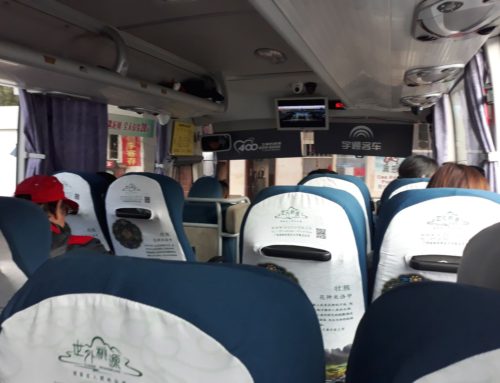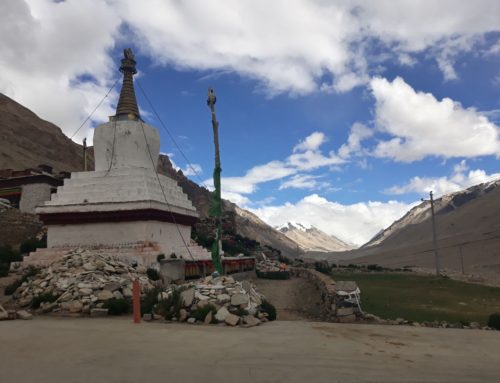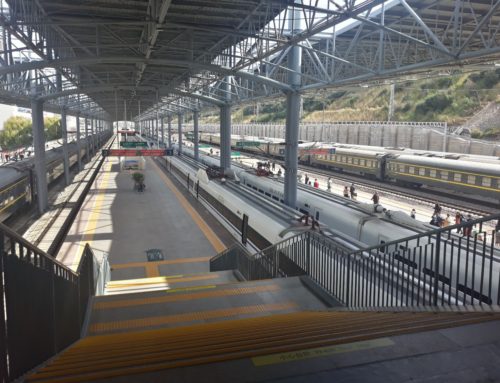China is huge! Most provinces are bigger than any country in Europe and more densely populated than any of them! Even if you are only doing a short trip to the main attractions you are likely to spend a lot of time on public transport, crossing the huge distances between them.
China has probably the most developed and extensive public transportation system on the planet and luckily for travellers most of it is relatively easy to use and really good value.

Security
Unfortunately the first step of dealing with any Chinese station is the security checkpoints, whether its trains, buses, metros or airports. Airport security is normal, but the others will come as a shock when you arrive. Train stations will have a security check before entering the either the ticket office or the main station. Bus terminals will have a checkpoint at the entrance, as will all metro stations!
At these security points you need to put all bags through the scanner, but you do not have to empty your pockets or remove coats etc. You go through a detector and get scanned by the staff (when they say something to you in Chinese it just means “turn around” so they can scan your back). Then you collect your bags and hope there was no issue although there often is.
Common items that set off the detectors:
- Penknife or similar – mine made it through a lot of scanners but these will regularly be taken
- Anything pressurised (shaving foam, mosquito spray, suntan lotion)- sets it off but never confiscated, you just need to show them
- Battery pack – only a problem at airports, make sure capacity is clearly displayed and not more than X
- Water – bottles will often be checked to ensure it is ok (not petrol I think)
- Alcohol – will always be confiscated if detected, bury it deeper in the bag and it should be fine
If security does decide to confiscate something there’s not much point arguing. The language barrier and lack of consistent, clearly defined rules makes it unwinnable.
Trains
I find the train system to be the easiest and most reliable way to get around and have spent an insane amount of time on all variants of Chinese trains. This has got my across some huge distances for very little money.
My article about what to expect and the different types of train ticket available here.
Intercity Buses
China’s intercity bus network is vast. You could probably travel to almost any part of the country exclusively using this system and in many remote areas it will be your default option.
I have written in detail about what to expect here.
Local Buses
Every city and town in China has an extensive and reliable local bus system. These buses are often very crowded but are an excellent, cheap way to get around.
Unless you have managed to activate a mobile wallet for China you will have to pay in cash for the bus. They do not give change! Ever!
Always stockpile as many 1 yuan notes and coins as you can to pay for these journeys. Almost all public buses will cost between 1 and 4 yuan regardless of distance. The price will be displayed on the hopper by the driver where you drop in your fare as you board.
The Metro
Many major cities have a metro system ranging from a few lines to the vast sprawling systems in Beijing and Shanghai. Most major stations, airports and tourist areas are connected to the metro system so I always look for one when arriving in a city to get to my accommodation.
The metro is always a very easy system to use but costs slightly more than the public bus. A typical journey will cost 3 – 5 yuan, increasing the further the distance or the more changes required.
All ticket machines here have an English setting, take cash and give change. Sometimes it can be difficult to get them to accept older or wrinkled notes so I recommend keeping a stash of 1 yuan coins for buying metro tickets.
Every part of the process is in English and similar to other metros so I won’t go into too much detail. The one point I want to raise is that you will need to push your way through! Despite all the announcements and signs, no one will ever let passengers off before trying to board. It’s one of my biggest annoyances in China because such a simple thing causes such chaos every time


Taxis
Everywhere you travel to in China there will be taxis available. As a solo traveller I rarely use them, preferring to take local buses and metros. However, for a couple or group the taxis will almost always be the easiest choice and are generally very cheap.
All taxis in cities will use a meter if they are an official licensed cab. You should only be aiming to take these; they will always be cheaper and you avoid most of the risks. If they try to tell you a price then point to the meter. If they still refuse to use it either go for another cab or haggle hard. The price they state will always be way over the real price, as with most taxis around the world.
I would expect a short journey in a city to be around 10-20yuan and a trip most of the way across town (e.g. between stations) to be about 40yuan. If you take a taxi long distance between towns the price will climb fast, a public bus will be cheaper unless you are in a group.
Internal Flights
Most towns, cities and even some popular tourist areas have domestic airports. Internal flights in china are generally extremely good value and should be considered against long distance train and bus journeys. For example when travelling from Harbin to Beijing a flight was significantly cheaper that the high speed train and not much more expensive that the long distance overnight hard sleeper.
Many people choose to fly to locations in Yunnan and Sichuan that are relatively hard to access, especially if they are on shorter visits to China.
I will quickly comment about altitude. China has some of the highest airports in the world on and around the Tibetan Plateau. Be aware that flying directly to these altitudes risks triggering significant altitude sickness as your body has no time to acclimatise.
I have written more about how to prepare for and minimise the effects of altitude here.
Last Updated: November 2019
Sign up below for email notifications of my monthly updates, and for the best stories, guides and information from my travels.
Please help me keep this website as accurate and helpful as possible
One of the biggest problem I have found with online travel information is that it becomes obsolete very quickly. If you have read anything here that you think may be incorrect, incomplete or out of date then please send me a message using the Contact page or leave a comment below.
Also I would be delighted if anyone is able to send in further tips and logisitcal information that I can add to this page to make it as helpful as possible. Thanks everyone!







Leave A Comment